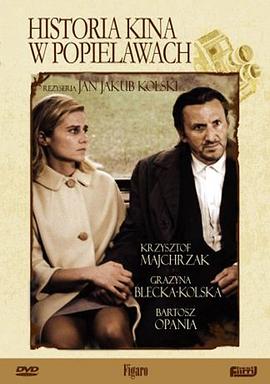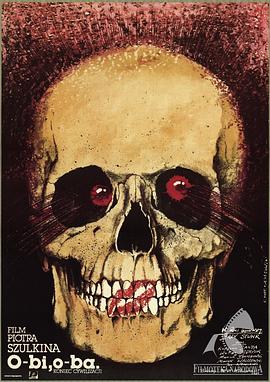克兹佐夫·马扎
搜索"克兹佐夫·马扎" ,找到 2部影视作品
导演:
/
扬·雅库布·科尔斯基
剧情:
魔幻现实主义影片。 10岁的斯塔谢克Staszek(托马什•克雷夏克饰)在他的日记中记录了他的同学约瑟夫的一些事八岁媚后。约瑟夫来自波皮耶拉瓦赫(Popielawach)地区美丽乡村一个铁匠世家,历代长子的名字都叫约瑟夫,由于他是第6代长子,所以有个意为排行第六的绰号“舒斯泰克” Szustek(米哈乌•亚辛斯基饰)。舒斯泰克自小就有打破家庭传统,拒绝成为一名铁匠的信念,而一直对祖传的一部电影放映机和其机械原理感兴趣。 一天晚上,放置这套放映设备的小屋被一个流浪的残疾音乐家库拉维克Kulawik(马里乌什•萨尼泰尔尼克)酒后纵火焚毁。在被赶来的、怒火中烧的舒斯泰克和他的父亲约瑟夫第五Józef V(克日什托夫•迈赫扎克饰)揍过一顿后,库拉维克悄悄告诉约瑟夫第五,说他常常跟约瑟夫第五的妻子哈努特卡第五Chanutka V(格拉日娜•布文茨卡-科尔斯卡饰)约好了在此屋偷情,这次是因为投石块打暗号恰巧砸翻了油灯而引发了火灾。 震惊之下的约瑟夫第五不再责备眼前这个令人瞧不起的乞丐,反倒放过了他。哈努特卡第五是个向往生活的女人,她不乐意生活在乡下,但她性功能低下的丈夫偏偏要继承祖传的家业,久而久之,她便在其他男人,包括通往乡间长途汽车的司机身上寻找做个真正女人的那种欢愉。 1860年,波皮耶拉瓦赫乡下。舒斯泰克的祖先约瑟夫第一Józef I(巴尔托什•奥帕尼亚饰)是个手艺精湛、充满想象力的铁匠。他不能违背父亲(维斯瓦夫•科特饰)的意愿,在跟与乡绅(扬•诺维茨基饰)有染的村姑亚戈达Jagoda(伊莎贝拉•布科夫斯卡饰)结婚的那天起,就下决心要摸透光的原理,提升照相机的工作性能,使照相机能放出会动的照片来,借此逃脱这桩婚姻的现实。凑巧同一天,乡绅的独生女(玛丽亚•格瓦德科夫斯卡)学习绘画完师后从巴黎回乡,而这个女继承人的习作给了他极大的灵感。儿子出生后,约瑟夫第一心知这其实就是女画家的弟弟,他越发把时间都用在了他的梦想上。 心爱的设备被毁令舒斯泰克伤心,他央求父亲重新制作,而感到被生活剥离得仅存一个肉体身躯的约瑟夫第五根本不愿理会儿子的想法。是舒斯泰克未能学到祖传手艺的、喜欢电影放映的、老迈的亚内克伯父给了他支持,舒斯泰克试图在幸存的电影放映机设计图上找到他自己能制作这套设备的诀窍。此时,哈努特卡第五在私情暴露后,不愿受丈夫的气,决定外出做工。 向高贵挑战,情欲最终战胜了阶级差别。约瑟夫第一在赢得女画家身体的同时,迸发出极大的创作热情,他将她优雅的舞姿用平行尺绘制在了鱼鳔制作的“胶片”上,终于完成了一部用马匹驱动、以木质为框架的电影放映机的制作。 1863年,波兰爆发了反对沙俄殖民统治和反对封建的民族大起义。“红党”起义军的戎装女流哈努特卡第一Chanutka I(约安娜•奥尔良斯卡饰)慕名来到约瑟夫第一的铁匠铺征求他制作武器的帮助。这使他有了人生唯一的一次爱情。不久,起义遭沙皇军队镇压,他也染上了伤寒,被“红党”和他的爱人运到了炮火中的冰天雪地里待毙。 战火燃向了波皮耶拉瓦赫。倒是沙皇的官兵没有丝毫破坏他们的战利品——约瑟夫用心血倾注的留世之作——电影放映机,而是对它发生了转眼即逝的兴趣。这是卢米埃尔兄弟发明电影技术之前的事。 舒斯泰克因体弱住院治疗,为了不让护士(玛格德莱娜•奥斯托尔斯卡饰)知道他在悄悄研究机械原理,跑开时又摔断了腿。约瑟夫五世为儿子的不懈所感动,同意为儿子照原样重新制作一部电影放映机,同时,他的生活激情也有了积极的转变,他来到妻子做工的工厂门口——他要接哈努特卡第五回家,他需要她的帮助,他想让她与他一同来完成儿子的这个最大的心愿……
导演:
/
皮奥特尔·舒尔金
剧情:
Set in an underground dungeon inhabited by bundled, ragged human beings, after the nuclear holocaust. The story follows the wanderings of a hero through the situations of survival. People wait for the Ark to arrive and rescue them while their habitat falls apart. Delving deep into the dusty and long abandonded vaults of b-cinema in search of lost gems always leaves me with a bittersweet taste. On one hand the discovery of unexpected gems where no one would think them possible is a rewarding experience. On the other hand though it makes one wonder how many of these remarkable low-budget oddities, personal love affairs of directors never quite famous and now all but forgotten, have almost forever slipped from memory n any case what we have here is a little post-apocalyptic gem from Poland that is really better than it has any right to. The dystopian near future of O-BI, O-BA finds a group of survivors of the nuclear war that ravaged the Earth inhabiting an underworld concrete bunker and biding their time as they wait for the mysterious Ark, an air ship of some kind that will come and save them. The Ark proves to be an elaborate hoax, carefully designed to give hope to the malnourished and desperate denizens of the bunker, while in the meantime the dome that separates their miserable existence from the nuclear winter两个人在线观看BD outside is slowly caving in. What first striked me about the movie is the design of the bunker and the depiction of the survivors. The survivors are gaunt, filthy and terrible-looking penitents, dressed in rags and aimlessly wandering the neon-lit halls of the bunker like automatons. The bunker is a rundown, seedy place, with bright neon lights peering from all sides like the eyes of malignant beasts. On one hand it is a slightly 80's depiction of the dystopian future but the movie never stoops down to MAD MAX cheese. Instead it combines biting political satire with the bleak outlook of a world with no future, black comedy with barbs on apathy, religion and power. The survivors, for example, are fed some kind of flour dropping from a tube that hovers in the air - later on we discover the food supervisor uses books and the Bible itself as filler for this meagre meal. There are many such short symbolic touches, perhaps not life-changing or faith-restoring, yet playful, clever and inspired. One thing is for sure; O-BI, O-BA is not your run-of-the-mill sci-fi schlock. It overcomes its modest budget with creativity and has genuine artistic aspirations both from a writing and directing perspective. My opinion is that it should have been filmed in black and white instead of colour though. The director uses atmospheric light and shadow to great effect and it would have registered even better in stark black and white. The blue-green neon on the other hand outstays its welcome after a while. Just a minor gripe in an otherwise solid b-movie with its heart set in all the right places. Imagine a less bleak THE ROAD (Cormac McCarthy) being injected with the satire and humour of DR.STRANGELOVE and you're getting there. See it if you can find it.


